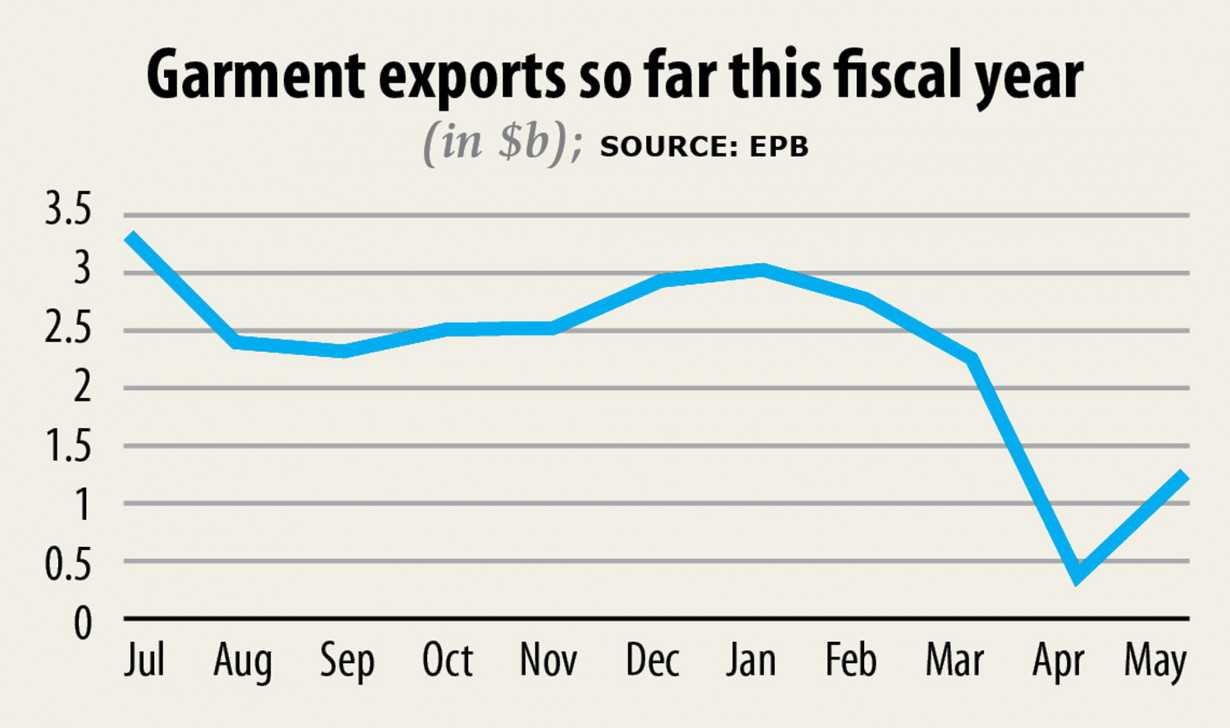Apparel exporters need more support to stay the course

Image collected
Apparel exporters and textile millers demanded the government accommodate more actions in the proposed spending plan to extract exports and buck up task creation in a way that the sector may weather the looming monetary storm unleashed by the pandemic.
Steps had a need to revive exports are actually absent in the spending budget, and on top of that, source tax has got been jacked up to 0.50 per cent from 0.25 per cent for the sector that fetches a lot more than 84 % of the full total export earnings, they explained.
Garment companies said they get some good type of incentive from the federal government every year however the support should have been extensive this season given the monetary meltdown that's sweeping around the world.
The garment and textile millers want the federal government to twice cash incentive on export receipts from all destinations to 2 % at least for the time being, which, they said, would help them meet their meet in the global marketplace.
"The budget is really as usual unless lots of concrete measures are taken up to revitalise garment exports," said Mahmud Hasan Khan Babu, managing director of Growing Group, an apparel exporter.
Taking into consideration the time and the entire business circumstance, the garment sector deserves a decrease in source tax to 0.25 % and a rise in cash incentive to 2 per cent, he said.
"We visit a grim picture in do the job orders at least for another three months because so many Western retailers didn't reopen their outlets fully. So we are in need of support to remain the training course," said Fazlul Hoque, taking care of director of Plummy Fashions, another leading exporter.
Hoque said many of the garment manufacturers cannot borrow from the government-announced stimulus funds as a result of stringent conditions.
If the conditions are calm at least for the micro, cottage, small and medium enterprises, many factories would endure the pandemic-induced recession, he added.
"The finance minister should have planned something big for the garment sector," said Shahidul Haque Mukul, managing director of Adams Apparels.
For instance, he said, the government could have announced more cash incentive on exports to the EU and the united states, both big markets that have about 80 % of Bangladesh's total garment shipment.
"This was not the proper time to improve source tax," stated MA Jabbar, managing director of DBL Group, another leading apparel exporter of the country.
The federal government should provide special healthcare support to garment workers, he said, adding that augmented allocation for healthcare, education and industries is actually a game-changer for the economy.
"In this critical time, the government should support the backward linkage sectors of the garment sector to ensure that they are able to supply quality products in competitive rates," he said.
Had the government had the opportunity to devalue the neighborhood currency against the dollar simply by 10 %, no other steps were necessary for the sector, stated Ahsan H Mansur, executive director of the Plan Research Institute.
Mansur, even so, said the federal government cannot devalue the neighborhood currency arbitrarily while the united states will then need to foot an enormous import bill.
"However the garment sector wants more incentive to stay competitive in the international industry and save the careers of workers."
The apparel industry won't see fresh or foreign investment any time in the future, said AK Azad, managing director of Ha-Meem Group, adding that special measures ought to be adopted for little and medium enterprises.
"The repayment types of conditions for their loans extracted from the stimulus offers could be eased."
Azad sees gloomy times ahead since new do the job orders found in the sector nosedived by in least 45 %.
Mohammad Ali Khokon, president of the Bangladesh Textile Mills Association, demanded 10 % cash incentive, rather than 4 per cent, at least for another six months.
"If Bangladesh doesn't fare good found in the EU and the US, Indian and Pakistani exporters will grab those markets. It's about time garment exporters embarked on all-encompassing worth addition by improving the principal textile sector," Khokon added.
The government's stimulus package of Tk 5,000 crore for paying garment workers' wages had not been enough as much factories could not avail themselves of the fund, said Arshad Jamal Dipu, vice-president of the Bangladesh Garment Suppliers and Exporters Association.
The government must have brought down the corporate tax for garment factories, he said, adding that the overwhelming target to borrow from the banking sector could shrink the money flow in to the private sector.
Source: https://www.thedailystar.net
Tags :
Previous Story
- Sears Owner Faces $40 Million Lawsuit from Bangladeshi...
- Apparel exporters should learn frm Bangladesh, Vietnam to...
- The coronavirus conundrum for Bangladesh apparel industry
- T- Shirt printing business pattern
- US apparel imports from China fall furthest in...
- How to make the Bangladesh apparel industry sustainable
- Bangladesh gets $2.5m export order from Canada show
- Textile sector under distress